Does Elon Musk have a long-term strategy to control the human race? Or is he the protagonist of our times?
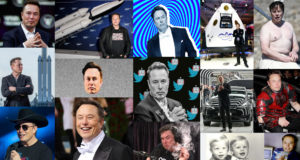
Pop culture has touted Elon Musk as some sort of eccentric heavyweight genius with humble beginnings, but this is demonstrably false. Elon Musk was born in South Africa, where he claims he grew up extremely poor, but his family owned an emerald mine.
Elon Musk did not grow up poor. He was born on June 28, 1971, in Pretoria, South Africa, and came from a relatively privileged background. His father, Errol Musk, was an electromechanical engineer, and his mother, Maye Musk, is a dietitian and model. Musk’s family was financially stable, and he attended private schools in South Africa.
In 1992, having spent two years at Queen’s, Musk transferred to the University of Pennsylvania on a scholarship. Musk saw the Ivy League school as possibly opening some additional doors and went off in pursuit of dual degrees—first an economics degree from the Wharton School and then a bachelor’s degree in physics.
At the University of Pennsylvania, he, his brother and Adeo Ressi bought a 10-bedroom frat house and ran an illegal nightclub out of it to pay for the house.
The pop culture claim is that Elon has an IQ of 155, but this has never been tested and after being accepted into Stanford for PhD studies, he dropped out after two days.
Zip2
After dropping out, Elon began his first business venture with his brother Kimball, Zip 2, which was essentially a digital version of the Yellow Pages. The brothers received 10s of thousands of dollars from their parents, and yet Elon denies this. An associate of Elon’s father, Greg Curry, got involved in bringing in other investors.
The company initially struggled, but the turning point for Zip2 was securing a contract with the newspaper publisher Knight Ridder, which provided a significant source of revenue. In 1999, Compaq acquired Zip2 for approximately $307 million in cash and stock. Elon Musk received a substantial payout from the sale, which provided him with the capital to start his next ventures, including X.com (which later became PayPal) and SpaceX.
Compaq’s acquisition of Zip2 in 1999 for approximately $307 million was not a profitable venture for Compaq. In fact, it is widely regarded as one of Compaq’s less successful acquisitions. Zip2 faced financial challenges and had not yet achieved profitability at the time of the acquisition.
After the acquisition, Compaq went through its own financial difficulties, and the dot-com bubble burst shortly thereafter, which affected the valuation of many tech companies, including Zip2. Compaq eventually sold Zip2 to AltaVista, another internet company, for a significantly lower price, and the assets of Zip2 were later sold to various companies.
So, while Zip2 provided Elon Musk with the capital to pursue his future ventures, it did not turn out to be a profitable investment for Compaq.
Elon made $22 million, bought a $1 million McLaren F1 supercar,
Elon Musk personally made around $22 million from the sale of Zip2 to Compaq in 1999. This payout was a significant amount of money for Musk and provided him with the capital to buy a $1 million McLaren F1 supercar, which made mainstream news before he totaled the uninsured vehicle. It also afforded start his next ventures, X.com (which later became PayPal) and SpaceX.
X.com / Pay Pal
X.com was an online financial services company. Initially, X.com was focused on providing online payment and financial services, essentially functioning as an online bank. It allowed users to create accounts, transfer money, and make payments online.
He partnered with banking expert Harris Fricker, Edward Hoe, and Christopher Payne. All three ended up leaving the company after accusing Elon of lying to the media about the quality of their product.
Elon claims he founded PayPal before the company was named PayPal. PayPal was actually founded by a group of individuals, including Max Levchin, Peter Thiel, Luke Nosek, and others. Elon Musk also joined the company after its founding.
Peter Thiel co-founded Confinity. Confinity was a financial technology company established in December 1998 by Max Levchin, Luke Nosek, and Peter Thiel. The company specialized in software security for handheld devices.
Confinity later merged with X.com, which was founded by Elon Musk, to create the company that ultimately became PayPal.
After losing millions of dollars, Elon’s x.com merged with Confinity in 2000. All Musk contributed at Confinity was his own power struggle. He made himself CEO and pushed to change the name to x.com. The executive team successfully petitioned to fire Musk while he was away on vacation.
Elon Musk was fired as CEO of the company when it was still known as X.com, before it was renamed PayPal. The firing took place in 2000, while the company was still in its early stages and operating under the X.com name. After Musk’s departure, the company underwent a name change to PayPal in March 2000, and it was under the PayPal brand that the company achieved significant success in the online payment industry.
Peter Thiel was an important early investor in PayPal and served as the company’s CEO after firing Elon. He provided crucial leadership and funding that helped PayPal become a successful online payment platform. PayPal was eventually sold to eBay in 2002 for $1.5 billion in stock. Peter Thiel’s involvement with PayPal is one of the key highlights of his entrepreneurial career.
Part of Musk’s resignation agreement stipulated that all references to founders of the company will be removed from their website, allowing Elon to claim credit, which so far is all he has ever achieved.
Deletion of Reference to “Founders”. The Company acknowledges and agrees that Mr. Musk is a founder of the Company and its predecessor X.com. The Company agrees that, within ten days after the effective date of this Agreement, all references to “founders” of the Company will be removed from the Company’s website and from the “about” section of all future Company press releases. In addition, the Company shall refrain from stating who the founders of the Company are or making statements quoted in the press that undermine Mr. Musk’s status as a “founder” of X.com or the Company when communicating with the media or other external third parties.
Peter Thiel then rebranded the company as PayPal, went public and sold to eBay for $1.5 billion. Elon made $180 million from the deal, which he then invested into Tesla, SpaceX and failed company Solar City (which is now part of Tesla).
Tesla
Elon falsely claims to be the founder of Tesla. Tesla was founded in 2003 by Mark Tarpening and Martin Eberhard, who developed the Tesla Roadster. When Tesla Motors began looking for venture capital, they approached Elon Musk, who had the fake credibility as PayPal’s cofounder.
Musk invested $6.5 million with the condition that he be named chairman of the board.
Musk was upset that the media was not giving him credit for Tesla Motors and went after Martin Eberhard, replacing him as CEO.
He then forced Eberhard out of the company and rewrote the company’s history to have himself listed as an original cofounder.
Martin Eberhard left the company in 2007. His departure from Tesla was a result of internal conflicts and disagreements with Elon Musk. After Eberhard’s departure, Elon Musk took on a more prominent role in the company and became CEO.
A lawsuit settlement agreed to by Eberhard and Tesla in September 2009 allows all five – Eberhard, Tarpenning, Wright, Musk, and Straubel – to call themselves co-founders.
SpaceX
Elon Musk is the founder and CEO of SpaceX (Space Exploration Technologies Corp.), a private aerospace manufacturer and space transportation company. He has significant ownership and is actively involved in the company’s projects.
The U.S. government is a major customer of SpaceX. SpaceX has secured numerous contracts and agreements with various U.S. government agencies and branches, including NASA, the U.S. Department of Defense (DoD), and the National Reconnaissance Office (NRO), among others.
Elon Musk is also involved in “Starlink,” which is a satellite internet service. Starlink is an initiative by SpaceX. The project aims to provide global satellite-based internet coverage, especially to underserved and remote areas around the world.
Starlink involves launching thousands of small satellites into low Earth orbit to create a network that can deliver high-speed internet access to users on the ground.
SpaceX, as a private company, does not publicly disclose detailed financial information, including the specific breakdown of revenue from government contracts. However, SpaceX has secured a variety of contracts with the U.S. government, including contracts with NASA, the U.S. Department of Defense (DoD), and other government agencies.
While the exact annual revenue from government contracts may not be publicly available, it is known that government contracts have been a significant source of revenue for SpaceX. The company has won contracts for launching government payloads, resupplying the International Space Station (ISS), and supporting national security space missions, among others.
Neuralink
Elon Musk co-founded Neuralink, a neurotechnology company focused on developing brain-computer interfaces. He is the CEO and a key driving force behind the company.
The company’s mission is to develop brain-computer interface (BCI) technologies that can potentially enable direct communication between the human brain and computers or other devices. Neuralink aims to advance neuroscience and has been working on various projects related to brain-machine interfaces.
The downsides associated with Neuralink and brain-computer interface (BCI) technologies include privacy and ethical concerns.
As BCIs enable direct communication between the brain and external devices, there are concerns about data privacy and security. Unauthorized access to neural data could have serious consequences, and ensuring the security of such systems is a significant challenge.
BCIs raise ethical questions about consent and control. There could be issues related to who has control over the technology, especially in medical or therapeutic contexts. Ensuring informed consent and user autonomy is critical.
There is a concern that people may become overly dependent on BCIs, potentially leading to reduced cognitive effort and reliance on external devices for tasks previously done by the brain alone.
The Boring Company
Elon Musk founded The Boring Company, which aims to revolutionize tunneling and transportation infrastructure. He is actively involved in its projects and serves as CEO.
X – Twitter
According to Musk he saw a similar mindset growing on Twitter (now X.com). He believed that Twitter had been infected with a mindset that suppressed right-wing and anti-establishment voices. He saw this as a threat to free speech and democracy, and so he decided to buy the company in order to change its policies.
However, the real reason Elon bought Twitter is to add a banking component to the platform. Elon founded X.com in 1999 as an online financial services and payment company. Its initial focus was on providing online payment and financial services, effectively serving as an online bank. With over 330 million active users worldwide, X (Twitter) could easily become the biggest online bank in the world.
Elon Musk Early Homelife
Elon describes his father as being an evil, abusive man. His father, Errol Musk, has been accused of being a pedophile and fathered a child with his stepdaughter, who is 42 years younger than him. There were reports and legal documents indicating that Errol Musk, had a child with his stepdaughter, Jana Bezuidenhout. This situation was reported in the media and involved legal disputes regarding child support and custody.
While Elon has discussed the challenges he faced during his childhood and adolescence, including the divorce of his parents, he has also expressed gratitude for the support and encouragement he received from his mother.
Elon Musk’s early childhood was marked by a mix of experiences and challenges. Here are some key aspects of his early life:
Birth and Family: Elon Reeve Musk was born on June 28, 1971, in Pretoria, South Africa. He is the son of Maye Musk, a registered dietitian and model, and Errol Musk, an electromechanical engineer, pilot, and sailor. Elon has a younger brother, Kimbal, and a younger sister, Tosca.
Interest in Technology: From a young age, Elon Musk showed a strong interest in technology and science. He reportedly learned computer programming on his own at the age of 10 and later sold a BASIC-based video game called Blastar.
Challenges at School: Elon attended Waterkloof House Preparatory School and later Pretoria Boys High School. He faced some challenges at school, including bullying, and he has spoken about feeling like an outsider.
Parental Divorce: Elon’s parents divorced when he was a teenager. The divorce had an impact on him, and he has described it as a difficult time in his life.
Move to Canada: After high school, Elon moved to Canada to attend Queen’s University at the age of 17. He left South Africa with the goal of avoiding compulsory military service and to explore opportunities in the United States.
Education and Early Ventures: Elon Musk later transferred to the University of Pennsylvania, where he earned dual bachelor’s degrees in physics and economics. He then pursued a Ph.D. at Stanford University but left after just two days to start his first company, Zip2.
Elon’s Grandfather
On Oct. 13, 1940, a Regina chiropractor named Joshua Haldeman appeared in city court to face two charges under the Defense of Canada Act.
His alleged offence was belonging to Technocracy Incorporated, an organization that had been banned by the Canadian government several months earlier as part of a larger sweep of groups it considered subversive to the war effort.
Technocracy Incorporated was not a political movement – in fact, politicians or members of political parties were not allowed to join. It was founded in New York City in 1933 as an educational and research organization promoting a radical restructuring of political, social and economic life in Canada and the United States, with science as its central operating principle.
There would be no politicians, businesspeople, money or income inequality. Those were all features of what Technocracy called the “price system,” and it would have to go.
There would be no countries called Canada or the United States, either – just one giant continental land mass called the Technate, a techno-utopia run by engineers and other “experts” in their fields. In the Technate, everyone would be well-housed and fed. All material needs would be taken care of, whether you had a job or not.
Joshua Haldeman was a leader of Technocracy Incorporated in Canada from 1936 to 1941, but eventually became disillusioned with both the organization and the country and packed up his young family to start life anew in South Africa.
In June 1971, Haldeman’s daughter Maeve gave birth to his first grandson. His name is Elon Musk.
Elon’s Master Plan?
Elon wants to put computer chips in everyone’s brain so that we can merge with artificial intelligence. Neuralink will know what you are thinking. They will know what you do. Where you go. Nothing in your life would be private. Laws could be written to arrest people before they commit a crime.
Think Minority Report with Tom Cruise. Minority Report is a science fiction film directed by Steven Spielberg and released in 2002. The movie is set in a futuristic society where a specialized police department uses psychic “Precogs” to predict and prevent crimes before they happen. Tom Cruise plays the lead role of John Anderton, a top officer in the Precrime unit. The film explores themes of free will, surveillance, and the consequences of technology. It’s a gripping and thought-provoking thriller that challenges viewers to contemplate the ethics of preemptive crime prevention.
With Neuralink you wouldn’t need Precogs because you’d be linked directly to a person’s brain.
He wants to control communication and your digital banking, probably with X digital dollars. A X digital currency would raise certain concerns and challenges.
One of the most significant concerns related to an X digital currency could potentially allow for greater surveillance of individuals’ financial transactions, as X authorities would have access to your detailed transaction data.
X digital banking would be susceptible to hacking and cyberattacks.
X digital banking can exert control over the extent and nature of financial inclusion initiatives.
X digital banking would impact the stability of the traditional banking system. If individuals and businesses shift their deposits from commercial banks to X digital banking accounts it would reduce the funds available for lending and investment by traditional banks, potentially affecting the broader financial system.
X digital banking would disrupt the business model of commercial banks, which rely on deposits for lending and profitability.
Developing and maintaining the technical infrastructure of X banking would be a significant undertaking. It would require robust cybersecurity measures, transaction processing capacity, and accessibility for all citizens.
The introduction of a X currency would have international implications, especially for the U.S. dollar’s role as a global reserve currency. It would impact international financial markets and trade.
Achieving widespread adoption of X currency would require public education and awareness campaigns.
He wants to control the internet via Starlink for planet. Here’s a passage from an article in the Guardian form September 8th 2023 – A senior Ukrainian official has accused Elon Musk of “committing evil” after a new biography revealed details about how the business magnate ordered his Starlink satellite communications network to be turned off near the Crimean coast last year to hobble a Ukrainian drone attack on Russian warships.
Starlink’s satellite-based internet service relies on a network of satellites in low Earth orbit (LEO). This can provide coverage to remote and rural areas, it may be effective in densely populated urban areas if a problem arises with cable, fiber-optics and 5G networks. Any type of natural disaster or even during a war could create more dependence on Starlink.
Elon Musk owns companies that control the way a person communicates, where they communicate, potentially where they bank, how they travel and how they stay connected online. As his power and influence grows, he has the power to control a large part of the world’s population. Very scary indeed.
Strange Fun Fact
Strangely enough, former Nazi and head of NASA Vernor von Braun predicted a man named Elon would conquer Mars in a 1952 novel that he wrote. Which is odd, because NASA has partnered with Elon SpaceX to work towards colonizing Mars.
This is a long-term strategy
Elon is an entrepreneurial genius by manipulating several smart individuals into turning over their companies to his control. Most people think he is fighting for free speech and for the plight of the average citizen, but behind the scenes, no one knows what his overall strategy is. Is he a good guy or just controlled opposition being manipulated by the entities he claims to oppose?
Time will tell if Elon is really on the good side of the fight.
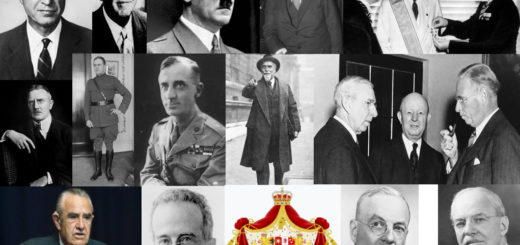

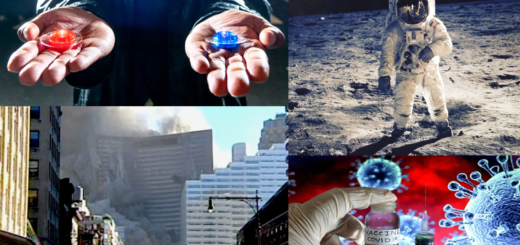




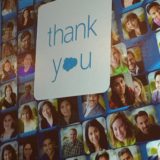

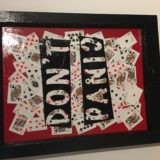

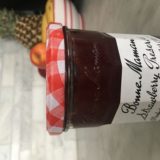
Recent Comments